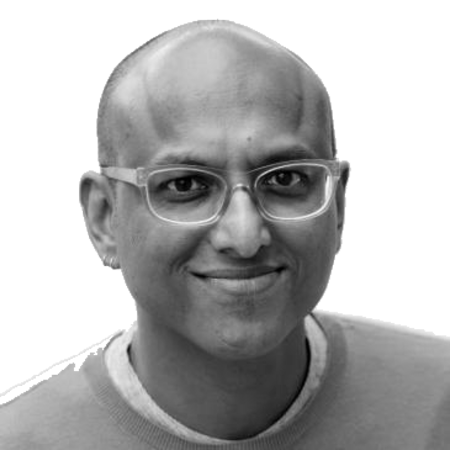I’m embarrassed to admit but the first steps down my career path happened entirely by chance. I had absolutely no career plans at age 18. I did psychology as a minor subject (just because it was on offer, I think) – but it was at university – Christ College, Bangalore– where I was quickly inspired: my psychology lecturer at undergraduate level (the “coolest” person I knew then) taught well, listened to jazz, and spent her summer holidays going off to remote Indian villages to set up and deliver psychological services, where there were no established healthcare facilities. I was deeply inspired by that – so right from the get-go I developed an urge to become a clinician and to make a real-life difference for people in need.
I went on to complete my clinical psychology training in India – at the National Institute for Mental Health and Neurosciences – where I first became acutely aware of the importance of research in delivering good quality clinical care. Like all clinical psychology trainees, we learnt to complete assessments and deliver therapy, but a few things bugged me: (i) how confident were we that people were getting better? (ii) why didn’t everyone get better? (iii) how could we change our ways of working so that more people could get the help they needed? In retrospect, my clinical training in India was a very unique experience. The national institute was the largest training centre for mental health and neuroscience professionals in India, but also a hospital set in 135 acres of land, and several patients, their families, trainees and some staff members stayed on campus! We were a relatively small workforce serving a very large population (the Department of Clinical Psychology alone saw approximately 50,000 patients in 2017-18). People came from all over India for treatment. As a result, I got to see some of the most severely affected people and a large number of them, too. The total immersion in that environment, including ward rounds in the evenings (and most Saturdays), have left a profound impact that’s stayed with me to this day.
From those early experiences, in India, and then Zambia (where I had subsequently gone on to work) – working with large numbers of often poor and illiterate patients, with limited resources, I experienced very directly the need to develop innovative ways of delivering services to a large population. It’s not good enough to have effective treatments that only serve a few. We had to be creative in our approach, understand local contexts, and figure out ways to scale up our delivery, without compromising on effectiveness. This required us to constantly apply a critical lens to everything we did – a skill I have further developed as a researcher, and has served me well as a researcher.
Today, like then, I’m a big believer in equalising access to the psychological therapies and interventions that are proven to be effective and cost-effective. Fighting health inequality is high up many nations’ agendas now, and rightfully so. I feel privileged to have a position where I’m part of an effort towards addressing these issues.

